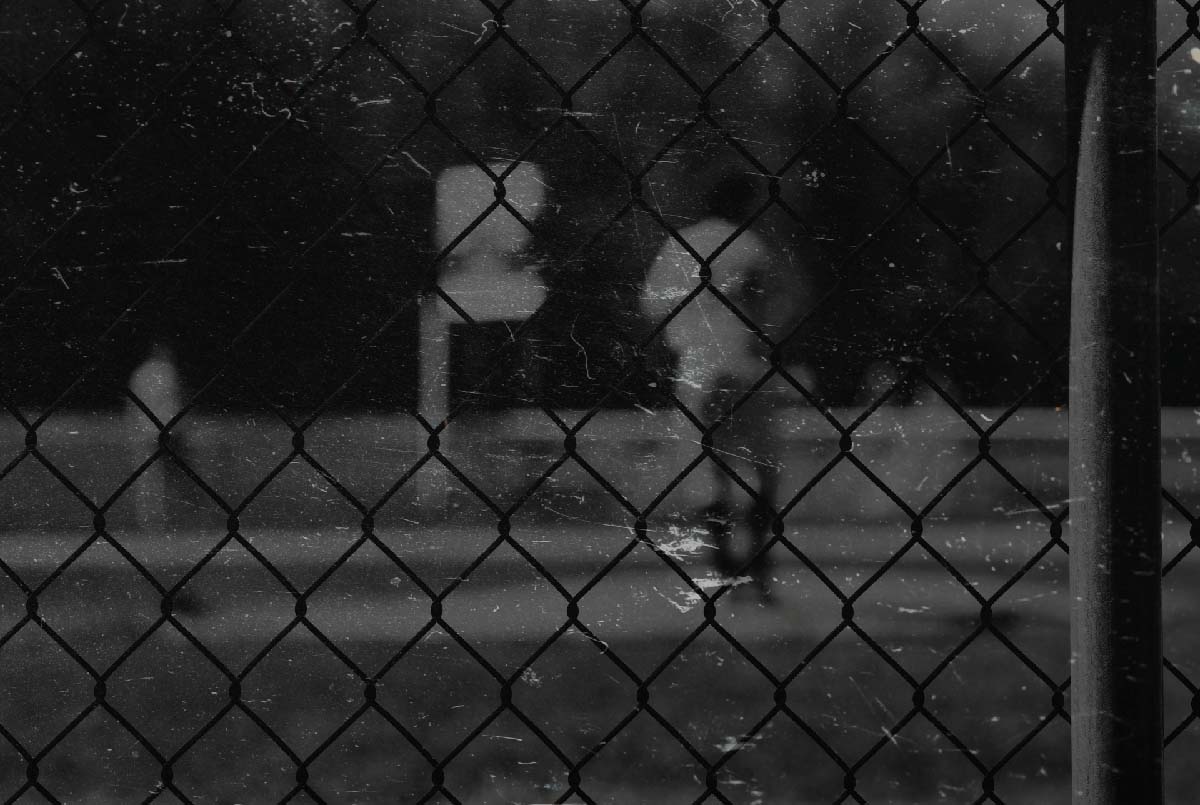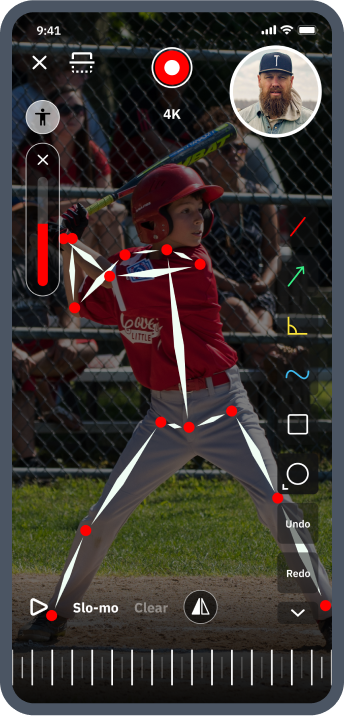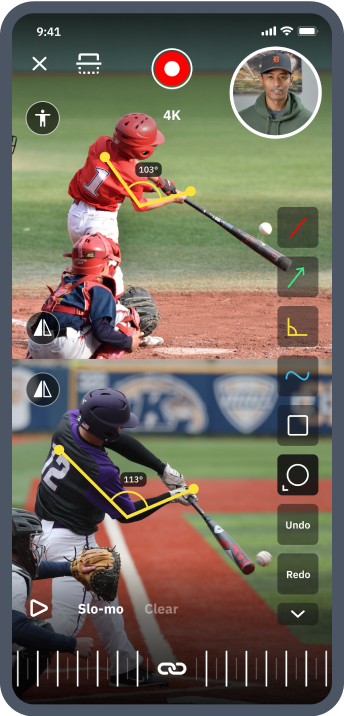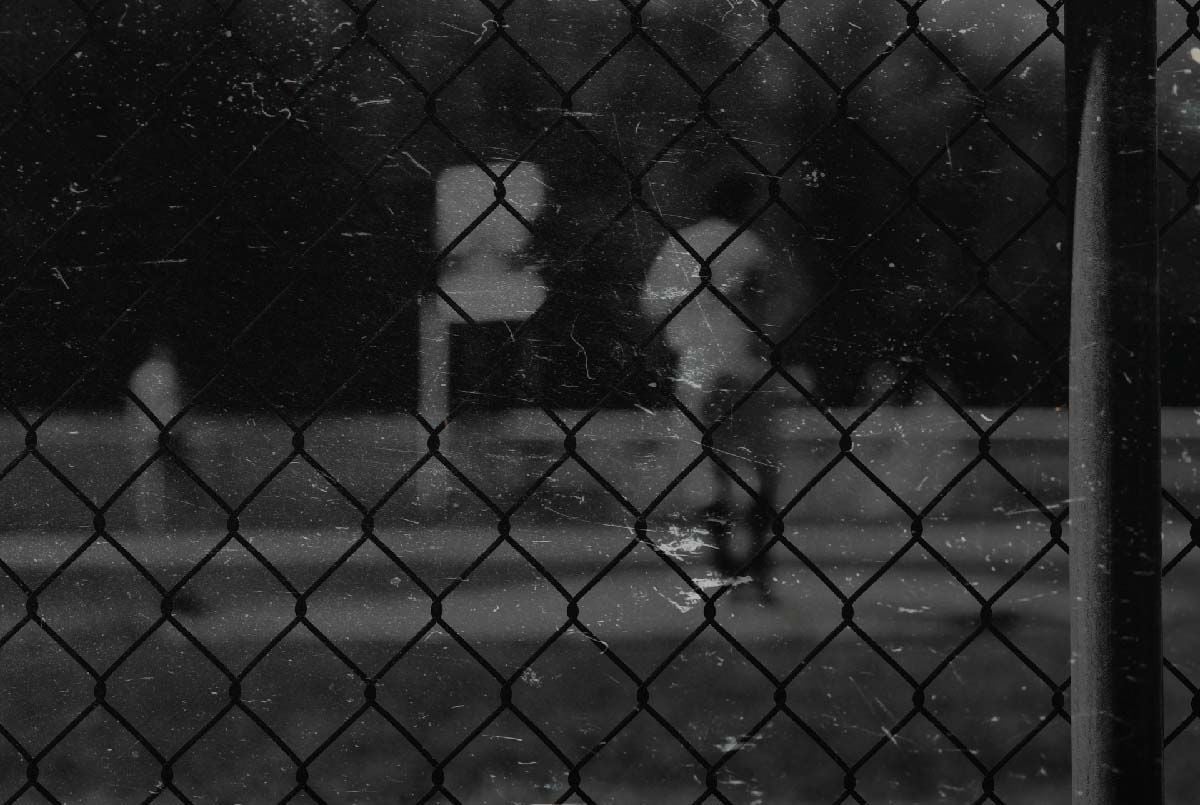The Ultimate Guide on How Sleep Affects Baseball Performance | Everything You Need Know

Sleep is the greatest legal performance-enhancing drug that most people are neglecting.
World-renowned sleep doctor Matthew Walker recently began his public quest to make sleep a top priority for everyone.
Walker works with many professional sports teams and combat athletes as a consultant on all things sleep and sleep performance.
Walker’s work has important implications for athletes and their sleeping habits – baseball players included – which we’ll explore in this in-depth article.
The TL;DR is:
Lack of sleep negatively affects just about everything related to baseball performance. Needing sleep hurts a ballplayer’s in-game decision-making and overall recovery ability while compromising their immune system, increasing injury risk, and inspiring poor nutritional choices – all in what can quickly become a vicious cycle.
Our Internal Clock Releasing Sleep Hormones Is Like a Third-Base Coach Giving Signs
Most of us will readily agree that sleep is non-negotiable.
The agreement usually ends, however, when we ask something like: how much sleep do we really need?
Allan Rechtschaffen, the University of Chicago sleep researcher and colleague of Walker’s, once said:
“If sleep doesn’t serve an absolutely vital function, it is the biggest mistake evolution ever made.”
So, let’s explore what he means for a moment.
Why did we evolve the need to sleep?
Why would any naturally-optimizing process require sleep in the first place?
It is the most vulnerable a person can be at any time. Muscles are essentially turned off, eyes are closed, and we’re lying down.
When we sleep, humans become the perfect prey, which seems counterintuitive to the survival goals of our ancient savannah-dwelling ancestors who had to contend with hungry lions.

The short answer to the question of why we evolved to need sleep has been studied for centuries at this point, and the definitive answer is still a mystery.
But, we won’t leave you completely hanging.
There are some strong theories as to why we've come to need sleep outlined by Harvard’s Sleep Medicine Experts:
- Inactivity Theory – Organisms evolved to sleep at night because being still and silent at this vulnerable time was a systematically safer bet than being out and about with predators roaming.
- Energy Conservation Theory – Sleep decreases our body’s total daily energy consumption, which helped when food and resources were more scarce.
- Restorative Theories – Sleep is important because it allows you to rest and relax after a long day. This lets your body heal any damage done, strengthen your immune system, grow, and get rid of waste.
- Brain Plasticity Theory – Sleep and the REM (rapid eye movement) cycle allows the brain to develop new connections, learn and process memories. But we’ll explore these insights in much more detail throughout this guide.
Of course, many other researchers have come to embrace that sleep evolved as a consequence to many or even all of these proposed theories.
How is sleep regulated?
Sleep is controlled by our internal clock, known as our circadian rhythm.
And our suprachiasmatic nucleus houses this circadian rhythm.
That last sentence was quite a mouthful, huh?
But the suprachiasmatic nucleus is like our brain's very own sign-giving third base coach, controlling many of our behaviors, including as Walker instructs, when we want to be awake and when we want to sleep.
As humans, we are mostly diurnal by nature – this just means that we sleep during the night and are awake throughout the day.
Instead of the number of batter-counted touches or their placement on the base coach’s body deciding whether a batter lays down a bunt or hits away, certain hormones control these brain processes.
Two hormones that are central to our sleep and circadian rhythms are melatonin and adenosine.
- Melatonin - Known as the “hormone of darkness,” melatonin tells our body that we need to start getting ready to sleep as nighttime approaches.
- Adenosine - Affects our circadian rhythm and creates a sleep pressure from the time we wake up until the time we fall asleep.

The Two Categories of Sleep for Ballplayers
Sleep itself can be broken down into two categories: Non-Rapid Eye Movement (NREM) and Rapid Eye Movement (REM) sleep.
- Non-Rapid Eye Movement - NREM has four stages. Stages 3 and 4 are the deepest stages of NREM sleep. Basically, the further along in the stages you are, the more difficult it is for you to wake up.
- Rapid Eye Movement - REM sleep is also known as “Dream Sleep.”
There’s an important distinction between REM and NREM based on the nature of brain activity, but Walker warns us that despite REM sleep being more well known to the public, no category of sleep supersedes another.
All categories and stages of the sleep cycle are important, and any analysis of an athlete’s sleep performance must be holistic.
Okay, with definitions out of the way, let’s look at some research and make inferences about what it all means for the real lives of ballplayers.

How Sleep and Wellness Affect Baseball Athletes
A major finding in recent sleep deprivation studies is that chronically sleep-deprived people are subjectively unaware that their performance has declined.
But first, some background.
In a 2010 study on sleep deprivation and object-selective attention, 23 participants were either given a normal night of sleep or were intentionally sleep-deprived.
They were then shown images in sequence and asked to click a button when they saw an image of a house or an image of a face.
The researchers determined – not surprisingly – that participants who were sleep-deprived performed significantly worse compared to those who received a normal night's sleep.
This study confirms earlier research by David Dinges, one of the professors who worked on the newest research.
Additionally, our old friend Walker explains that long term effects of sleep deprivation can become the norm for someone who doesn’t realize they are sleep-deprived in the first place.
What does this mean?
How does this apply to you or your baseball players?
Ballplayers who consistently lack sleep will see a decrease in their overall performance.
Of course, this is rather obvious.
But the particularly dangerous thing about in-game performance declining due to sleep is that baseball coaches, parents, and the players themselves are likely to point to the cause being found in their mechanics, mental mindset, or both.
This fact, coupled with the fact that sleep deprivation quickly becomes a normal feeling, means that lack of sleep is often never diagnosed as the true culprit for the player’s underperformance out on the field.
Okay, now let’s dig into some of the specific things affected when a ballplayer doesn’t get enough sleep.

How Sleep Affects Baseball Decision Making
Again, according to Walker, our actual decision-making skills are off when we lose sleep.
Specifically, sleep deprivation affects two areas of the brain that help us make proper decisions: the prefrontal cortex and the amygdala.
- Prefrontal Cortex - Termed the “brake” of the brain. It helps us assess situations and make logical decisions.
- Amygdala - The “gas pedal” of the brain. It drives our knee-jerk emotional responses.
When these two brain regions are off balance, we tend to make rash decisions that may not yield the best results both in life and on the ballfield.
And, to repeat, making conscious decisions is extremely difficult when our bodies are not well-rested.
What’s a baseball example of the prefrontal cortex and amygdala working together?
These two parts of the brain can directly impact success inside the batter’s box and here’s how.
Watching the pitch as it comes into the strike zone and deciding whether or not to swing requires both the prefrontal cortex and the amygdala – both logical and emotion-based decision-making.
The logical side is rather obvious.
Is the pitch coming in a strike or ball – is it something the hitter can drive? And what is the situation? Runner on third with one out and the game tied going into the 8th inning, perhaps?
In fact, there’s an entire logical-baseball-calculus that goes into most every in-game moment.
And you thought you were bad at math.
Long-time players, coaches, and fans do this calculus so naturally as to barely notice how many different variables they are taking into account at once. We’re like TI-84 calculators finely-tuned to solving baseball situations.
But what about the emotional side of hitting?
Did the batter strike out against the same pitcher last at-bat, or has he struggled against him throughout the entire season? Some players let this stuff get inside their head.
And what’s going on at home or in the hitter’s social life that may be distracting? Is there a scout in the visitor’s side stands?
The batter needs to maintain their physio-emotional arousal levels in order to react with the lovely violence that is a baseball swing – all while not letting past failures, fears, and frustrations creep in to cause hiccups to their timing or technique.
As any coach knows, reacting through pure emotion in a skill-based sport like baseball is not a recipe for sustained success.
You need to be able to express both logic and emotion to be successful in the long term.
And, bringing it back to the point of this guide, to do so, athletes need sleep.
Unfortunately, lack of sleep doesn’t only cause poor decision-making skills in ballplayers.

The Relationship of Sleep, Recovery, and Injury for Athletes
Sleep deprivation can also impair an athlete’s ability to recover after strenuous training and exercise.
In a study of the effects of sleep loss on cardiorespiratory functions in volleyball players, Azboy and Kaygisiz showed that one night of sleep loss shortened the amount of time it took the player to become exhausted.
And another thing every coach or trainer knows is that once an athlete is truly fatigued, technique starts to go out the window.
In addition, a single night of simply restricted sleep after a heavy bout of exercise was found to decrease performance by four percent in a three-kilometer timed trial the following morning among adult cyclists.
In other super obvious news, recent evidence also suggests that the consistent availability of training is a primary determinant of athletic success.
Less training generally equals less success, of course. But, what are the greatest obstacles to training for all athletes?
Injuries and illnesses.
And there’s evidence suggesting a link between sleep and injury as well. Prior research on the relationship between sleep and injury has focused almost exclusively on youth athletes.
The available evidence suggests clearly that impaired or decreased sleep is associated with an increased risk of injury.
In a study of middle and high school athletes, Milewski et al. found that those who slept less than eight hours per night on average were 70 percent more likely to report an injury than those who slept more than eight hours.
This is a huge injury percentage rate.
In addition, a 2017 study of 496 adolescent athletes from 16 different individual and team sports found that increased training load and self-reported decreased sleep duration were independently associated with an increased risk of injury.
This is especially for amateur ballplayers trying to balance success on the diamond with success in the classroom – not to mention their family and friend obligations.
The underlying mechanism for the relationship between sleep loss and athlete injury is not perfectly defined at this point.
It may be related to impairments in reaction time and cognitive function after sleep deprivation that could predispose an athlete to acute injury mishaps.
But another possibility is that impaired sleep may contribute to higher levels of fatigue that can similarly contribute to injury risk in athletes.
The title of that 2017 study cited above is “Multiple factors explain injury risk in adolescent elite athletes.” Sleep is but one of the powerful risk factors that cause ballplayers injury.
We’ll explore the science behind sleep’s close relationship to another variable, nutrition, a bit later in this guide.
But, for now, we just wanted to share a helpful venn diagram of risk factors for athlete injuries based directly on the one found in P von Rosen, et al.’s wonderful study.

The Relationship Between Sleep and Athletic Performance on the Ballfield
We’ve always told any athlete we’ve coached that one of the best abilities you can cultivate is availability.
Being unable to participate in your sport is the ultimate cause of performance decline. And when you’re injured, you can’t participate.
Again, sleep deprivation has continually been shown to make athletes more susceptible to injury.
Doctor Cheri Mah, another sleep specialist, conducted a study with Stanford University’s basketball team.
The rules of the study ensured that players would extend their sleep times to the recommended 7-9 hours a night.
This new sleep schedule significantly boosted their athletic performance.
All outcomes improved, including:
- sprint performance
- free-throw percentage
- three-point percentage
- subjects’ self-rating, meaning how the athlete felt they had performed
Although improvements found in the study, like 8 free throws changing to 9.5 free throws, may seem small, keep in mind that basketball games are often decided by one point.
Winning your conference or winning the championship can come down to one missed shot in high-level basketball. And we all know that our game, baseball, is a game of inches.

Sleep and Competitive Success
So far, we’ve shown how much sleep can affect performance tests and half the time made a small leap into how it will likely affect live game success.
But another study of 42 adult netball athletes used a combination of wrist actigraphy and previous studies from sleep journals before and during a national tournament to specifically evaluate the relationship between sleep and actual competitive success.
The two teams with the highest placement in the tournament demonstrated significantly greater sleep durations and subjective sleep quality ratings than the two last-place teams.

Sleep and the Immune System for Baseball Players
So far we’ve seen how sleep affects wellness, decision-making, recovery, injury, and athletic performance.
But that’s not all – it also impacts your immune system.
This is particularly germane to any discussion of sports and health given the 2020-2021 seasons that we all lived through.
Multiple studies, of which, these are simply samples, by Irwin, Prather et al., and Robinson et al have all determined a relationship between the amount of sleep a person receives and their risk of becoming ill with various ailments.
And in 2021, Garbarino et al. took an exhaustive look at research linking sleep and immunity only to finish their paper by saying:
Conclusively, in the perspective of staying healthy in this rapidly changing society, the sleep–immunity relationship raises relevant clinical implications for promoting sleep health and, as evidenced here, for improving or therapeutically controlling inflammatory response by targeting sleep.
And if you're sick, you aren’t able to train or play the game we love.

How Sleep and Nutrition Affect Baseball
As we hinted at earlier, a ballplayer and their success is a confluence of many variables:
- Their genetics
- The amount and quality of their skill work and performance training
- Their sleep
- And their nutritional intake.
Since the turn of the twenty-first century, the decline of sleep has been well documented.
Additionally, the rise of obesity and excessive weight gain have simultaneously become increasingly prevalent.
It turns out that sleep deprivation is a key factor in the national concern for obesity.
When it comes to our appetite, there are two hormones that control our urge to eat or not to eat: ghrelin and leptin.
- Ghrelin - the hormone in the body that initiates the feeling of hunger or not being satisfied with caloric intake
- Leptin - the opposite function of Ghrelin, telling the body it’s full.
Sleep has been shown to be an important regulator of these two hormones.
So much so that a lack of sleep will increase the hormone ghrelin in your body creating a greater need/want to eat.
Are you craving that burger, fries, and cold soda, because you only slept 4 hours last night?
In 2013, Greer, Goldstein, and Walker indeed determined that not only does a lack of sleep increase the need to eat, but it also influences the decision in the quality of food.
That’s right, the preference for sweet or carbohydrate-rich foods is at a greater demand when there’s a lack of sleep.
In 2015, Simon, Field, DiFrancesco, and Beebe also took 31 participants and subscribed half to 10 hours of sleep and the other to six and a half hours of sleep.
They similarly saw that the sleep-deprived group found the sweet or carbohydrate rich foods more appealing than vegetables and fruits.
Obesity and body appearance aside, it’s easy to see how lack of sleep can cause a vicious cycle of performance hindrances for ballplayers.
We all knew that both poor nutrition and lack of sleep can keep an athlete from reaching their full potential.
And now we know that both of these things are inextricably linked.

Changing Your Sleep Habits is Free and Easy
Ballplayers, amongst all this doom and gloom, we do have some good news for you.
It doesn’t cost you one penny to improve your sleep – it’s a change you can implement immediately.
Hopefully, by now, it’s clear that lifestyle changes impact how you or your player perform on the field.
Of course, there are many other factors at play when determining in-game outcomes, but controlling what’s in your own power will help negate thoughts of “what could have been.”

Final Thoughts on How Sleep Affects Baseball Performance
Taking it full circle to where we started, our friend Dr. Matthew Walker once wrote:
Sleep is the universal health care provider: whatever the physical or mental ailment, sleep has a prescription it can dispense.
Sleep is something we take for granted because it is free and we (hopefully) do it every night.
But fail to accomplish 7-9 hours of sleep, and you’ll feel how essential it is.
At least, as we’ve terrifyingly learned, you’d feel it at first – until it becomes your new normal.
Ultimately, athletic performance needs a holistic approach – sleep, nutrition, hydration, and quality of training all go hand in hand.
But before athletes look for technical skill-related reasons they’re not improving, they should take a serious look at the other aforementioned qualities.
No amount of pre-workout, supplements, or famous coaches on SeamsUp can ultimately make up for an athlete’s terrible sleep and recovery habits.
So, with all that said, happy zzz’s.
Unlock your ballplayer’s full potential
Find the perfect vetted coach to build a solid foundation or take your player's skills to new heights.
Download the free app

About the Author
Anthony Arguello
MEd, CSCS
Anthony Arguello is a Professor of Kinesiology at Citrus College. He's also the school's head strength & conditioning coach and assistant football coach.

